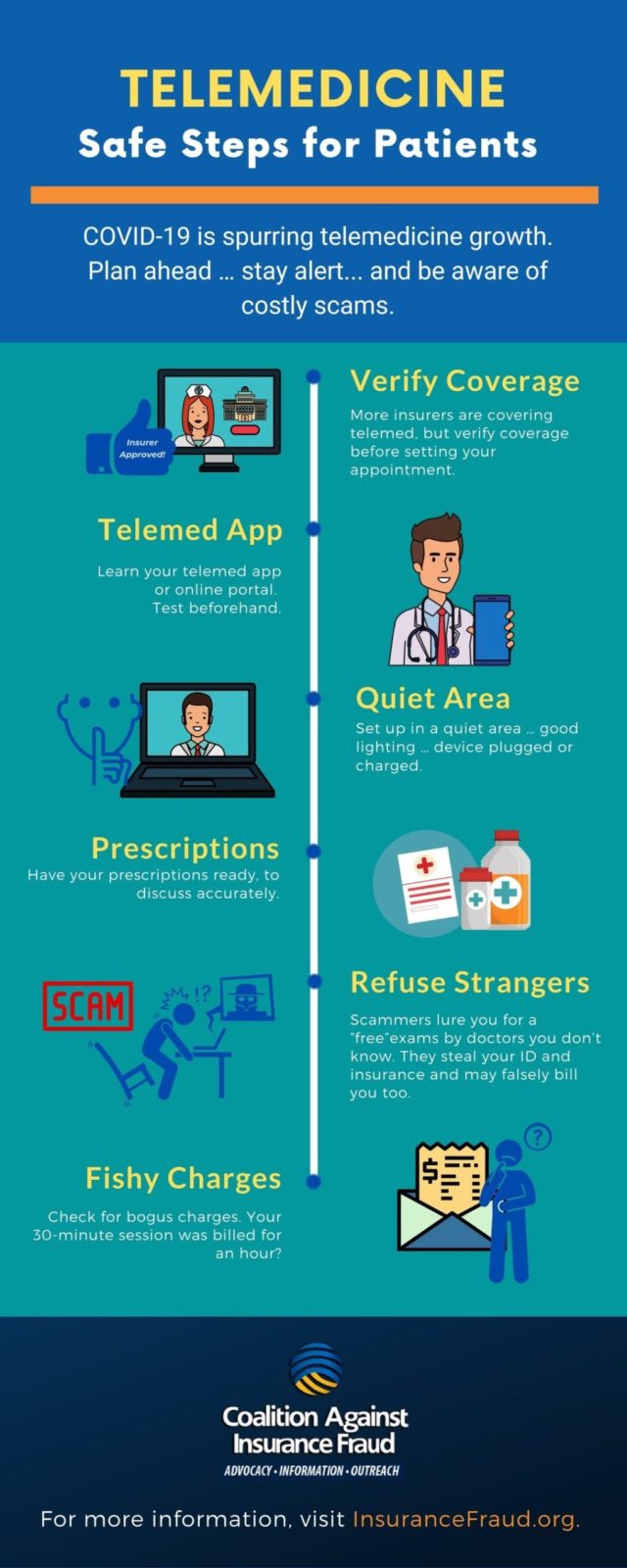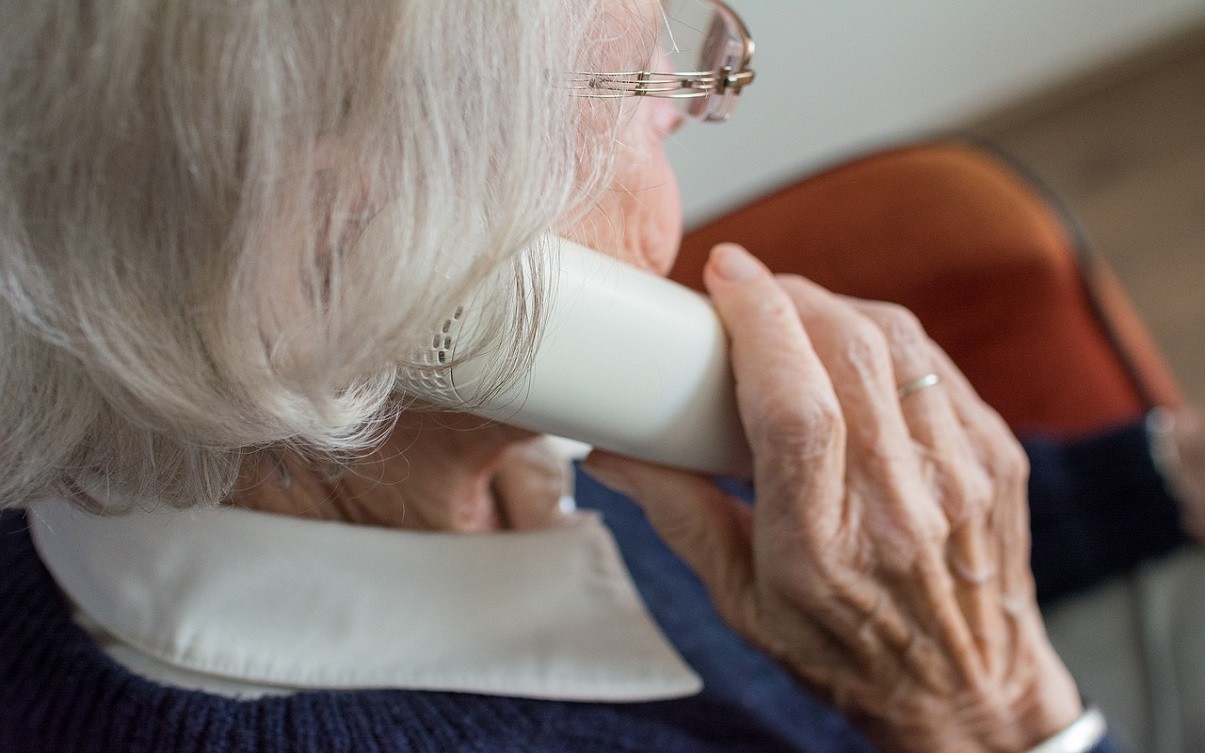Each year the insurance industry loses billions to scams
COVID-19 is spurring more consumers to seek the safety and convenience of distance healing by telemedicine, yet consumers must stay alert for costly insurance scams, warns the Coalition Against Insurance Fraud.
Telemedicine by remote is widely available for consumers sheltering at home throughout the U.S. So to stay safe, consumers are increasingly holding video and audio healthcare sessions with their doctors and other medical providers from the comfort of their homes.
Convenient medical exams, advice, diagnoses and even treatment are all being accessed by remote. Yet costly insurance scams can exploit the burgeoning arms-length telemedicine. Tele-schemes can steal patients’ identities and defraud their insurance policies, the Coalition warns.
Bogus telemedicine sessions for illicit profits also can damage a patient’s health.
Get the most out of your telemedicine sessions, yet stay alert to insurance scams:

Quiet area. Hold your session in a quiet area, free of home noises and distractions. Make sure the lighting is good, and your devices are plugged in or charged.
Prescriptions. Have your prescription bottles ready so you can accurately discuss your medicine needs.
Flashlight. Bring a flashlight so your medical provider can better see injuries, sores or inside your mouth if needed.
Telemed app. Know your telemed app or portal before your session. Test to make sure it operates compatibly on your system.
Refuse strangers. Scam artists cold-call people, often seniors. The callers offer free telemed exams with a doctor you’ve never met. You’re promised free braces, medicines or other health benefits — just give up your insurance information. These are ploys to steal your medical identity and falsely bill your insurance.
Suspicious charges. Check your medical statements carefully. Was your insurance billed for telemed sessions you never had? Charged for full-hour sessions that lasted only a half-hour? Billed for braces or medicines you never received?
Report scams. Contact your insurer, state fraud bureau or Medicare if telemedicine bills look suspicious or you suspect a scammer tried to recruit you.
Telemedicine offers a new era of convenient healthcare during the pandemic, and beyond. Watch for insurance scams to ensure your telehealth session is safe, secure and healing, the Coalition urges.










